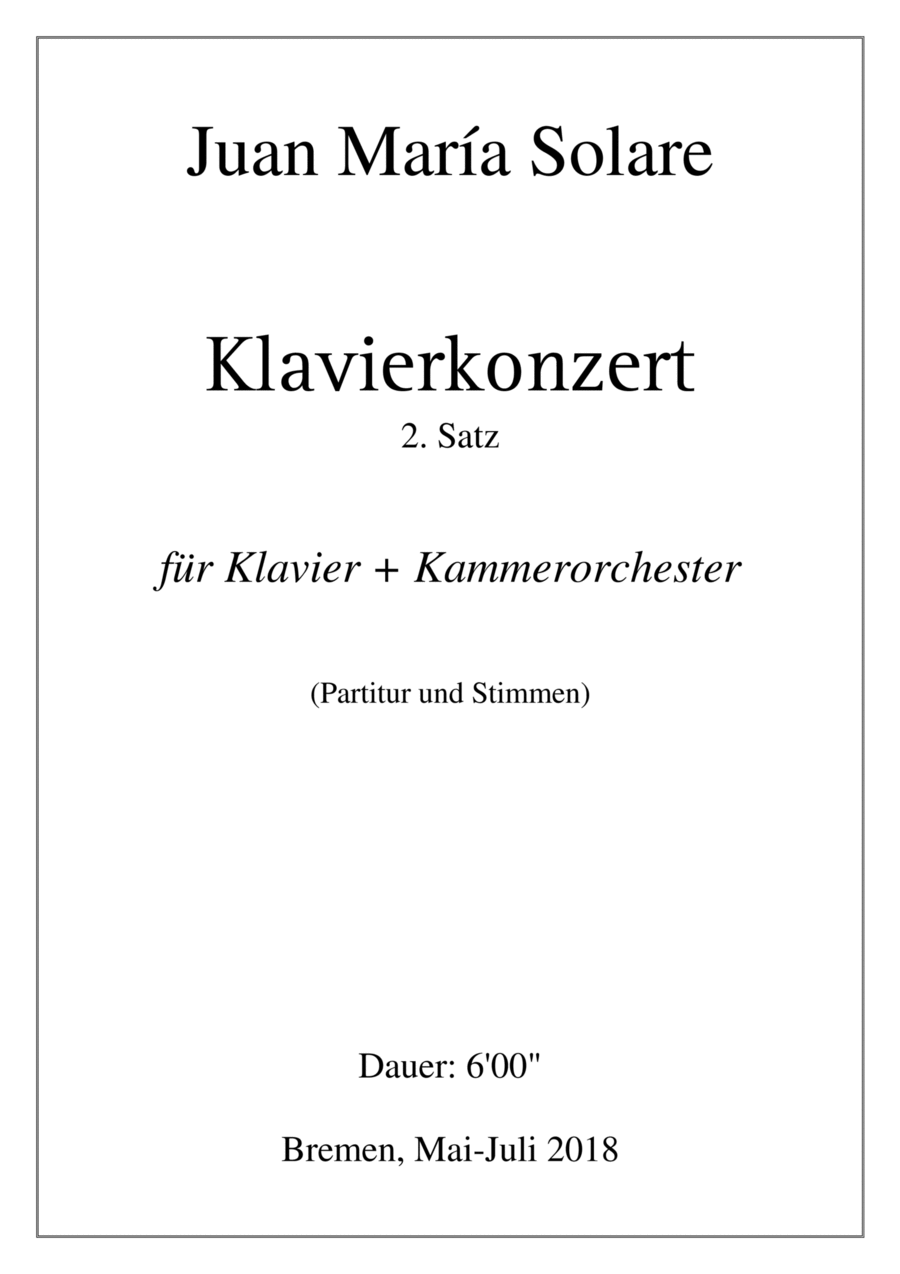Chamber Orchestra - Level 3 - Digital Download SKU: A0.1197730 By Juan MarÃa Solare. By Juan MarÃa Solare. Arranged by Juan MarÃa Solare. 20th Century,Classical,Contemporary. Score and parts. 64 pages. Juan Maria Solare #796911. Published by Juan Maria Solare (A0.1197730). Piano Concerto No. 1 - SECOND movement [score and parts]Please find the other two movements - also in this platformThe full score (of the three movements) is also available independently HERE:https://www.sheetmusicplus.com/title/piano-concerto-no-1-score-only-digital-sheet-music/22468631?aff_id=565049Video in YouTube (score follower)Aesthetic reflections on the piano concerto (by Juan MarÃa Solare)During the eras of classicism and romanticism, a concerto was often conceived as a confrontation between a soloist, symbolising the individual, and the orchestra, representing society. Seen in this way, a concert reflects a value system that pits the individual against the group and poses a struggle of I against you. Surely this vehemence could be explained in a Beethovenian era when the concepts of human rights and individual freedom were fragile ideals.However, it is a different scale of values that my piano concerto tries to reflect: the idea of cooperation, of teamwork and of an orchestra as a living organism whose organs are not superior to one another, more vital than others, but fulfil different functions, qualitatively speaking.Every soloist plays a leading role, but this does not imply either subordination to the rest or denigration or subjugation of the rest. The fact that the soloist is sometimes in the foreground does not imply a victory over the others. The very concept of victory is meaningless here.At times, the soloist will fulfil a leadership role, at others he or she will underpin from passivity what is happening in the orchestra, intentionally from the shadows, as a grey eminence. And at other times - why not - he will question what the majority is doing.It is not a rough relationship of me against you, but there is also a we.The composition and orchestration of this piano concerto was made possible by a grant from the Senator for Culture of the Free Hanseatic City of Bremen. This work was funded by an artist's grant as part of the Bremen-Corona-Hilfen programme.The premiere by the orchestra of the Bremer Orchestergemeinschaft is scheduled for the beginning of 2024. Duration: 17 to 20 minutes.
